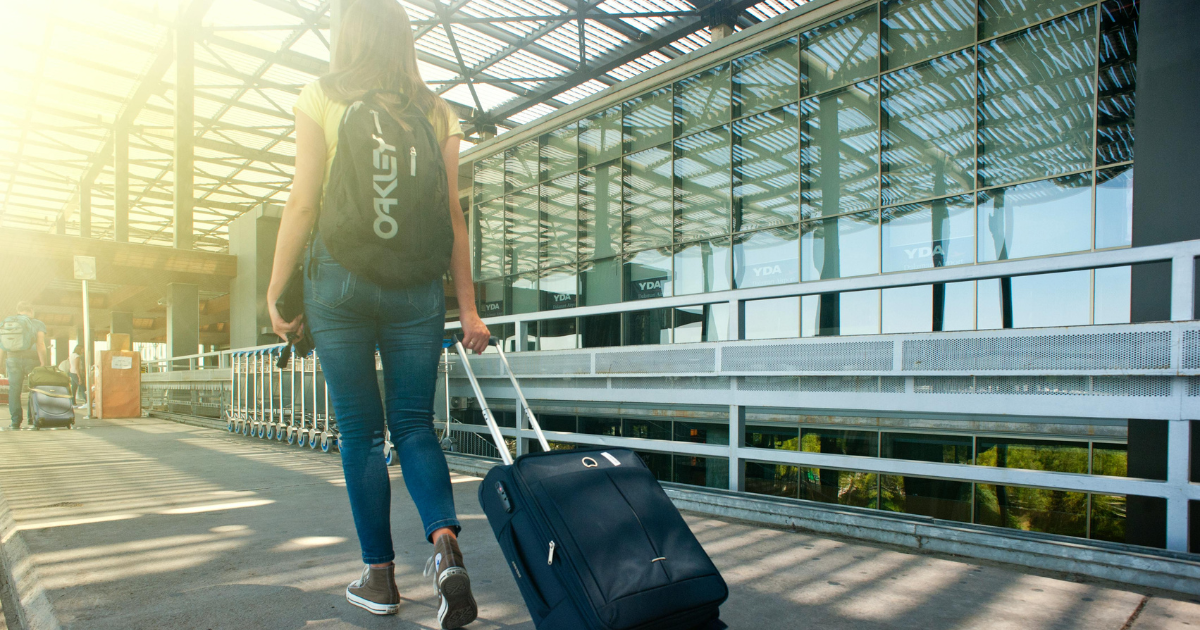Travel should be an experience of discoveries and new findings. However, it has become a nerve-wracking and worrisome experience for most travelers. If you ever had a racing heart before getting on a plane or a knot in your stomach before leaving for a trip, you are most certainly not alone. Travel anxiety is much more common than people realize, and it’s a problem many individuals face on an ongoing basis.
In this post, we will be discussing all aspects of anxiety over travel, from understanding its symptoms to identifying triggers and discovering practical strategies for managing it. Whether you’re dealing with a travel anxiety disorder or just experiencing occasional stress before a trip, these tips will help you minimize the stress and enjoy your journey to the fullest.
Understanding Travel Anxiety
Travel anxiety is one type of stress or fear that an individual experiences, especially when planning or going on a trip. To some, it’s just this vague feeling of fear, for others, it becomes this intense travel anxiety disorder. It can hit any one of us at any given time, whether it be the frequent flyer or one preparing for the occasional holiday.
Common Symptoms of Travel Anxiety
The symptoms range from the minimum unease to severe physical and emotional distress of travel anxiety. Among the common symptoms include:
- Physical. Dizziness or short breath, racing heart, stomach problems
- Emotional Signs. Dread at the prospect of the travel, panicked or overwhelmed while thinking of the trip itself.
- Mental Symptoms include racing thoughts, worrying about what might happen, and fearing things will be wrong during travels.
If you are feeling these symptoms, then there is a high chance you are suffering from anxiety over travel. It is a very natural reaction for many and the good news is that it can be managed by the right strategies.
How Travel Anxiety Affects Your Life
Travel anxiety disorder can affect not only your traveling plans but your relationships, work life, and even mental health as a whole. It can become so draining that constant worry about future trips can lead people to stop traveling at all, causing missed opportunities, professional commitments, or personal experiences.
Sometimes, anxiety and travel can cause a ripple effect, where one stressful trip leads to anxiety about future travel. It is essential to note that travel anxiety is manageable, and with the right tools, you can regain control over your trips and enjoy the excitement that travel brings.
Identifying Triggers of Travel Anxiety
Travel anxiety is far better managed when you can identify which particular thing triggers it. You can prepare well and even minimize your anxiety before you embark on that trip.
Fear of Flying
For a lot of people, flying is the biggest trigger for travel anxiety – a real – phobia. Most of the time, it stems from fear of heights, claustrophobia, or worries about flights incurring danger. Being at that height without any form of control makes the panic even stronger.
If fear of flying is your main trigger, try techniques like deep breathing or grounding exercises to calm yourself before and during the flight. Many people also find travel essentials for anxiety, like noise-canceling headphones or a comforting travel pillow, to be helpful during long flights.
Worry About Leaving Home
Your apprehension about traveling could have another trigger: your worry about leaving home. The fear that something can happen to your home is one unexplainable anxiety. Some experience anxiety thinking about their pets and perhaps even their family, while others wonder what it could be like to remove themselves from their comfort zone. That kind of homesickness can turn travel into an overwhelming idea.
In this regard, staying connected with family and friends while traveling works well. Likewise, preparing your house and belongings so that everything is in good condition before you leave may provide consolation. Bringing a small reminder from home, such as a photo or an item for the company, will also reduce feelings of longing for home during the trip.
Uncertainty and Anticipation
Travel anxiety is, for most people, the uncertainty of what one will encounter during a trip. It may be in navigating airports, clearing customs, or just simply getting to a new destination, and the unknown variables can spark anxiety. Maybe you fear missing your flight, losing your luggage, or even getting lost in an unfamiliar city.
The unknown can be an amplifier of anxiety and travel because this is what keeps the mind focused on all the potential things that could go wrong. The remedy to this trigger is preparation. The more you prepare and plan, the less likely it is that you will feel overwhelmed by uncertainty.
Practical Tips to Manage Travel Anxiety
Having agreed somewhat about what might be the most frequent causes, let’s get a practical one and educate you on some ways of making your trip less worrisome and how it can be great for you.
Preparation and Planning
Planning ahead is undoubtedly one of the best ways to combat anxiety over travel. As confidence over humps in life is guaranteed with planning. So, begin with these:
| Make a Checklist | You will need to bring everything, from your passport to travel documents and stuff to pack. |
| Book Your Accommodations in Advance | It’s a lot easier when you have a place to sleep in at night. |
| Create a Travel Itinerary | Details include transportation, activities, and free time. These can reduce stress and pressure from making last-minute decisions. |
When things are in place, and you feel ready, anxiety does not find room. And do not forget to pack some of the essentials while traveling for anxiety, like a journal, some medicine, or soothing teas.
Relaxation Techniques
While traveling, such as by car or by air, you must prepare yourself for your anxiety when tension times come. Ways to help reduce tension include:
- Deep Breathing. Inhale 4 counts, hold 4 counts, exhale 4 counts.
- Progressive Muscle Relaxation. Tighten and relax the various muscle groups to release the tension built up.
- Mindfulness or Meditation. Focus on your surroundings and be present rather than getting caught up in the “what ifs.”
Incorporating these relaxation techniques into your daily routine, especially before and during travel, can minimize the effects of travel anxiety disorder.

Staying Connected
Traveling assistance programs can be wonderful during moments of anxiety and travel, sometimes, just having friends around or even a fellow traveler with whom you have become attached will make things much easier, as they can provide comfort when that is needed most.
Communicate your itinerary to someone you trust and stay in contact throughout your trip. Having someone who has your back can make loneliness or alienation much less likely to happen.
Final thoughts on Tips for Stress-Free Trips
Travel anxiety is a normal problem that most people are facing, but it is not a barrier to keeping you from traveling. To understand your triggers and work through the tips and techniques outlined above, you can take the reins of your trips to ensure a more relaxed trip. Whether you are dealing with mild unease or a more severe travel anxiety disorder, the right strategies can help you feel more comfortable and confident. Remember, with the proper tools and support, travel can once again become an exciting and stress-free adventure.
Call to Action
By understanding the causes of travel anxiety and applying the techniques shared in this blog post, you can take control of your travels and enjoy the best experiences possible. If your anxiety over travel starts affecting more aspects of your life than you feel you can tolerate, consult with a professional. Travel anxiety disorder denies you the full experience of the world. Begin planning your next adventure today with confidence!

FAQ’s
It’s common to have questions when it comes to dealing with travel anxiety. Here are answers to some frequently asked questions that can provide further clarity.
What are the common symptoms of travel anxiety?
Common signs of travel anxiety include, but are not limited to, restlessness, nausea, rapid heart rate, and excessive worrying about travel. If the symptoms identified are severe or interfere with travel, then it can be helpful to seek a professional’s advice.
How can I identify my travel anxiety triggers?
Reflect on past travels and start making lists of triggers. Carry a journal on how you feel before and during the trip. You will know your patterns in anxiety over travel.
What are some effective relaxation techniques for managing travel anxiety?
Some of the most effective relaxation techniques include deep breathing, visualization, progressive muscle relaxation, and mindfulness. These are some of the practices that help calm both mind and body when highly stressed.
When should I seek professional help for travel anxiety?
In such cases, when your travel anxiety disorder is getting in the way of your daily life, then professional help would be necessary. Panicking attacks and even worse symptoms could come your way. Therapy, like CBT, may prove helpful in dealing with the issue.
How can I find the right therapist for managing travel anxiety?
Look for a therapist who will work with anxiety, phobia, or related travel distress. Reading the reviews, asking for referrals, and consulting with a primary care doctor is probably going to help in finding the one who might guide you about your traveling anxiety.








